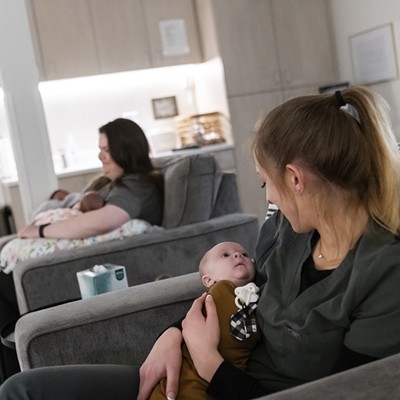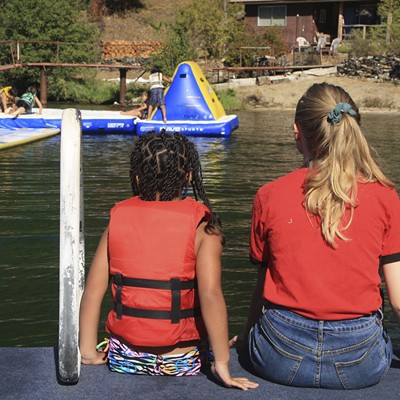You’ve seen PSAs haranguing you to talk to your kid about drugs and alcohol. But those commercials don’t do a very good job telling you exactly how to talk to your kids.
“You have to have a good relationship with your child,” advises Dr. Adnan Amin of Spokane’s Sacred Heart. That requires learning how to get a teen to talk. Don’t just ask how the day was. (“Fine,” goes the reply.) Instead, ask questions like, “Are there a lot of cliques in your school?” and “How’d your essay turn out?” Text with them regularly. (Contrary to some guides, don’t feel obligated to use dumb TXT abbreviations — that can just seem corny.)
That sets the groundwork for more serious conversations. Use Lindsay Lohan’s latest stint in rehab or an uncle who struggles with alcoholism as a jumping-off point. One thing you’ll want to underscore is how few kids regularly use drugs or alcohol. Even at state colleges, there’s a sizable number who choose not to drink at all. Peer pressure, research shows, is rarely overt. It often is simply a child being in an environment where alcohol is consumed, and not knowing what to do. Some guides recommend role-playing various scenarios with your child.
And if you used drugs when you were their age? Most experts recommend being honest, without getting into specifics. That gives you an opportunity to talk about why you used drugs, and how you view your own behavior now.
If you suspect a child is already using alcohol or drugs, it’s best to simply ask them directly. But think through how you’ll respond beforehand. While you want and need to learn more about the situation, refrain from being accusatory.
“You shouldn’t blame the kids,” Amin says. Asking “Well, what did you think would happen if you went to the party at Tyler’s house?” is probably not helpful. Instead, try something like “You must have been really confused,” or “Do you understand what happened?” It’s important not to get angry. If you think you’re going to lose control, leave the room.
And don’t be reluctant to seek help from a mental health professional. Sometimes drug use speaks to an underlying condition — depression, bipolar syndrome or anxiety. Sadly, “a lot of kids who need treatment are not getting the treatment,” Amin says. “Therefore, they’re using the substances in the form of self-medication.”




















